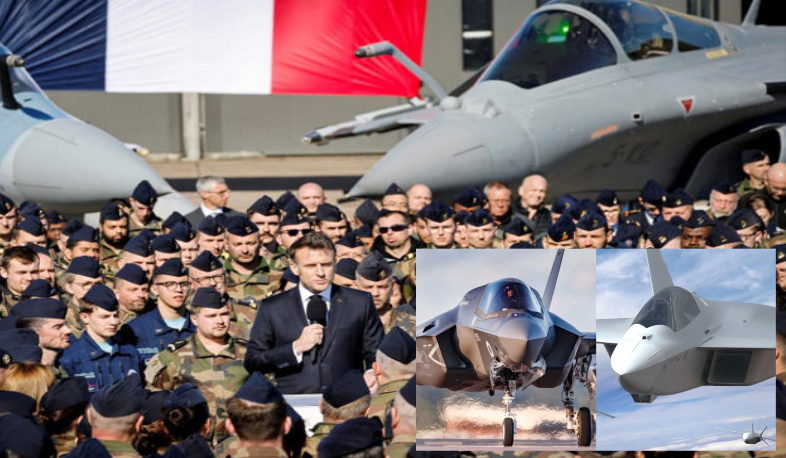In the intricate world of defense procurement and geopolitical alliances, a growing rift is emerging between Europe and the United States—centered not around diplomacy or trade, but over fighter jets. Speaking at Dassault Aviation’s quarterly financial results event, CEO Éric Trappier issued a stark warning: Belgium’s potential purchase of U.S.-made F-35s could exclude it from joining the Future Combat Air System (FCAS), a flagship European defense program being developed by France, Germany, and Spain.
The tensions between Europe and US have been simmering for some time and have been exacerbated under Donald Trump and the US military complex who are looking for buyers for American weapons and not just partners.
Europe has sensed this and has been steadfast in maintaining its own military infrastructure. They believe that over dependence on the US will make them vulnerable, something they can ill afford with the dynamic geopolitics of the region.
At the core of the tension lies the question of sovereignty. The FCAS program represents Europe’s bid to assert its strategic autonomy in defense—reducing dependence on American military technology and shaping its own path in aerial warfare for decades to come.
Spearheaded by Dassault Aviation and Airbus, the FCAS is envisioned as a next-generation stealth fighter platform, integrated with drones, AI, and advanced communication systems.
In contrast, the U.S.-led F-35 program, developed by Lockheed Martin, has become the dominant fifth-generation fighter project globally, with a wide network of allies and buyers. However, participation in the F-35 program often involves deep interoperability with U.S. systems, and, critics argue, strategic reliance on Washington.
According to Trappier, a major criterion for joining the FCAS is a “commitment to purchasing locally produced equipment.” Where Europe remains dependent on Europe. The message is clear: Europe’s high-tech military future is for those who invest in it—not those who opt for American alternatives.
Belgium stuck in the middle
Belgium finds itself in the crosshairs of this geopolitical tug-of-war. The country has long been weighing its options for upgrading its aging fleet of F-16s. In 2018, Brussels announced its decision to acquire 34 F-35A aircraft, citing interoperability with NATO allies and technological superiority.
Yet, Belgium has expressed interest in deeper participation in European defense initiatives, especially as the EU pushes for strategic autonomy in response to global instability and shifting U.S. foreign policy priorities.
The challenge for Belgium—and other European countries—is how to balance historical ties with the U.S. while contributing meaningfully to Europe’s independent defense capabilities.
Days after committing to seek full-partner status in the Future Combat Air System (FCAS) sixth-generation aircraft program, Belgium has taken a sharp U-turn, notifying that it is “reconsidering” its position due to the arrogance displayed by Dassault Aviation CEO Eric Trappier.
“The government will evaluate its position in the FCAS project. As a founding father of NATO and the EU, a loyal ally, and headquarters holder, we have no lessons to learn from arrogant industrialists,” Theo Francken, the Minister of Defense and Trade, said in a post on the social media site X.
Europe FCAS vs US F-35
The fighter jet debate is more than just a procurement decision—it symbolizes diverging strategic visions. For Europe, the FCAS is a litmus test of its ability to develop and maintain sovereign defense capabilities. For the U.S., continued F-35 sales strengthen transatlantic interoperability and ensure American defense leadership in NATO.
Should countries like Belgium, Poland, or the Netherlands continue to prefer the F-35, it could fracture Europe’s cohesion around FCAS. The risk is that FCAS becomes a Franco-German Spanish project with limited broader European buy-in, weakening the case for a unified European defense industry.
From the American perspective, increased European defense autonomy could dilute U.S. influence in NATO and complicate future joint operations. While Washington supports European military modernization, it is less enthusiastic about initiatives that exclude U.S. technologies or create parallel defense structures.
The future of transatlantic defense cooperation may hinge on how these tensions are managed. If European countries continue to split between U.S. and EU defense platforms, interoperability challenges could mount. More importantly, the strategic divergence could erode trust and coordination between allies, especially in crisis situations where seamless collaboration is essential.
On the other hand, these growing pains might be necessary for Europe to finally build a cohesive and capable defense identity—one independent of the US.
For Belgium and others, the message from Dassault is clear: investing in American jets may carry far bigger costs. As Trappier made clear, commitment to FCAS is not just technical—it’s political. Now with powerhouses of Europe and US going head-to-head it will be interesting to see where the rest of the European nations lean. Towards a European joint stance or towards Washington.








